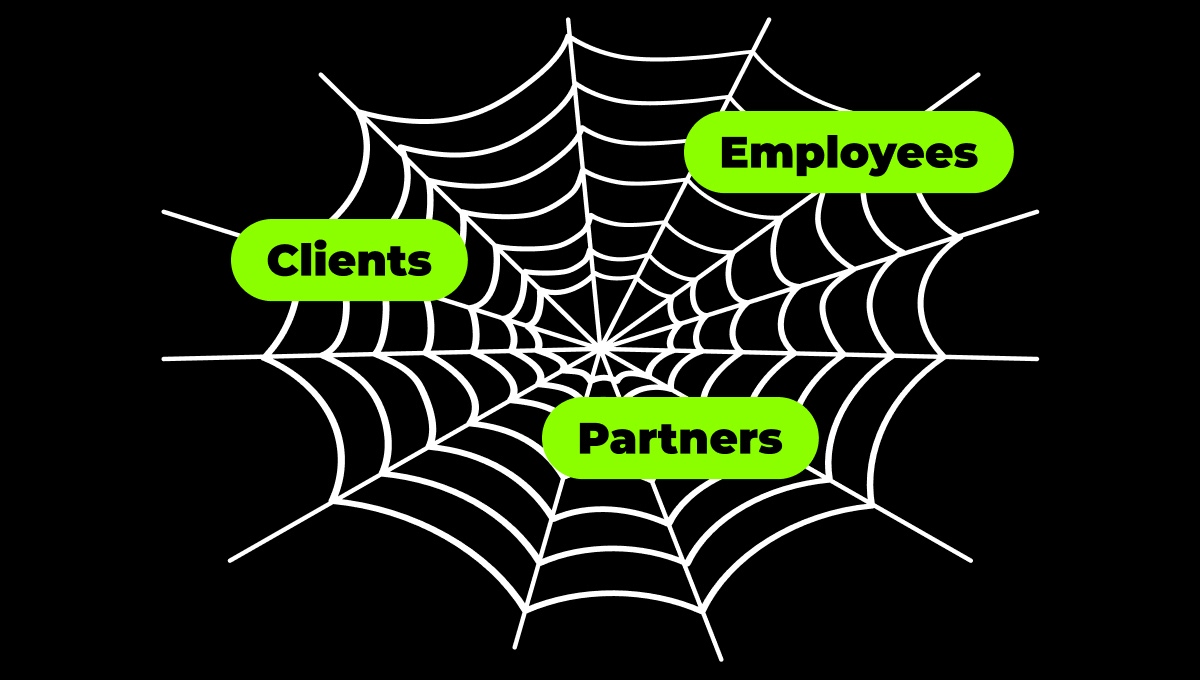In 2024, IT remains one of the sought-after fields for professionals. However, not everyone shares an interest in algorithms, matrices, and coding in general. As we've discovered, no amount of courses can truly help master programming; it requires comprehensive education and a willingness to self-develop.
On the flip side, digital product development extends beyond just coding. It involves specialized professionals whose absence could lead to release failures. So, don't give up on your dream of entering IT, even if you're a true humanitarian who has never glimpsed at backend code. We invite you to explore our guide on non-coding IT professions and choose one that aligns with your skills.
Tester
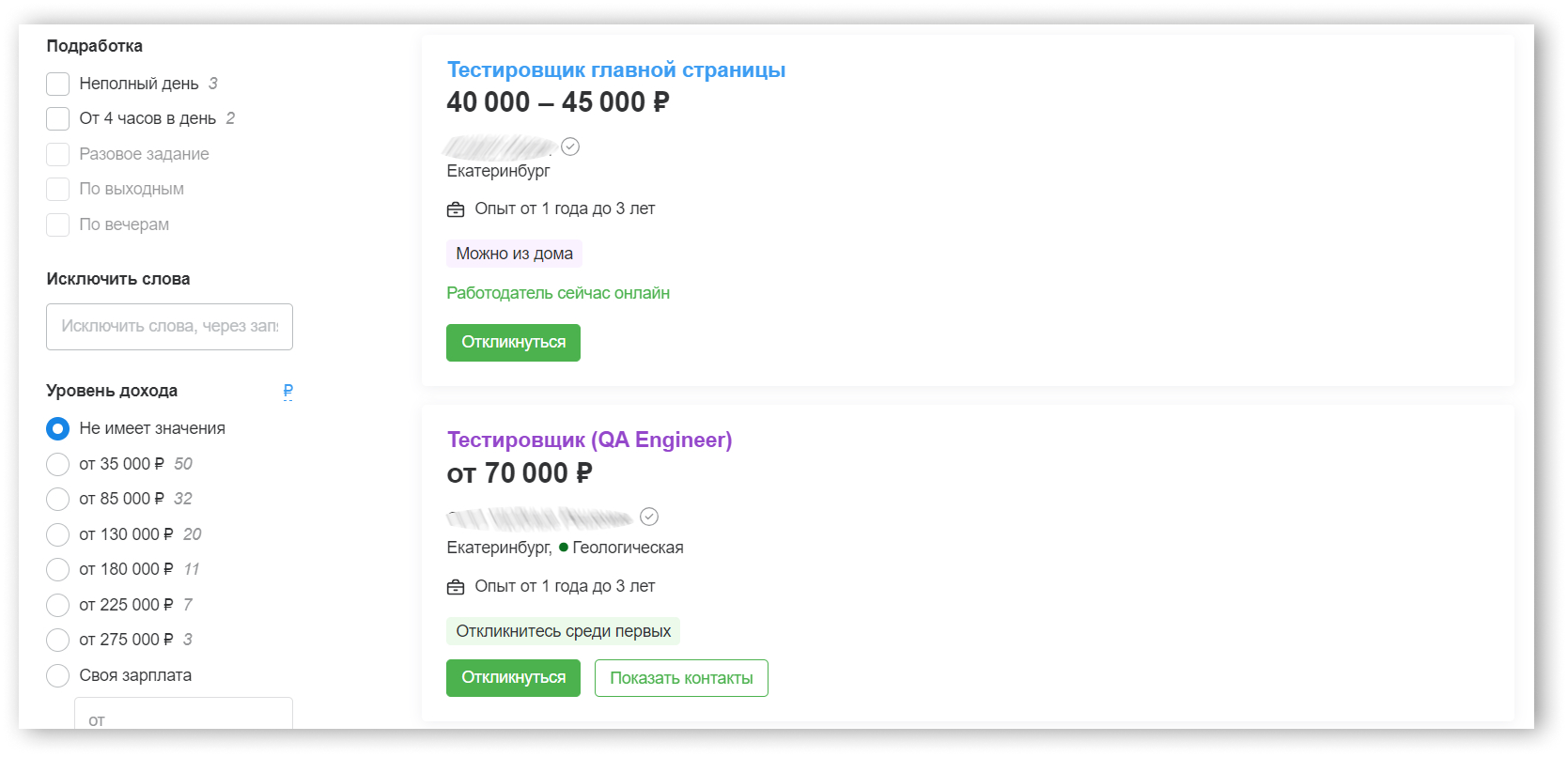
Launching a product without thoroughly testing its functionality is not an option. That's where a specially trained individual comes in, manually attempting to "break the system" from every angle. They script test scenarios, simulating user behavior on applications or websites, and document the results. At the early stages of a career, coding isn't a prerequisite, but if you aspire to progress, learning it becomes essential for creating automated tests and advancing to the role of QA Engineer.
Primary Responsibilities
- Analyzing functional work requirements.
- Developing test scenarios.
- Executing testing on various aspects of the application.
- Identifying and documenting errors.
- Participating in discussions for product improvements.
Required Skills
- Team collaboration skills.
- User-oriented thinking ability.
- Attention to detail.
- Knowledge of testing methodologies and understanding of the software development life cycle.
Designer
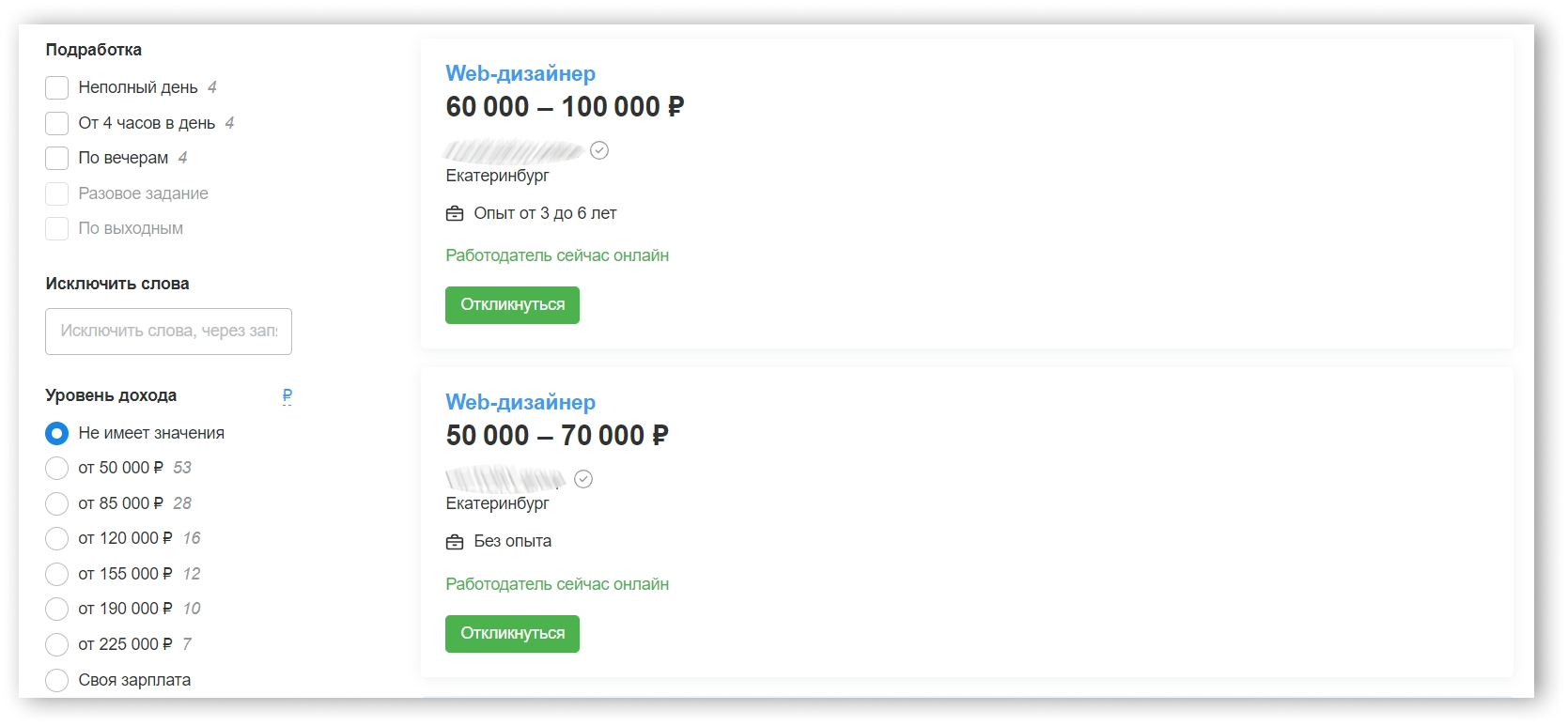
The field of design encompasses various branches: UX/UI, web, game, landing page, graphic, and more. It involves not only creative work but also meticulous exploration of trends and methods of implementation. Collaboration with clients, developers, and frontend professionals is crucial. While not mandatory, having basic knowledge of HTML and CSS can be beneficial for understanding the practicality of your ideas.
Primary Responsibilities
- Creating visual elements that enhance the perception of a product or brand.
- Designing layouts, logos, banners, and other materials.
- Working with colors, shapes, and selecting appropriate fonts.
- UX/UI designers take responsibility for the user interface's ease of use.
Required Skills
- Visual conceptual thinking and creativity.
- Understanding the needs of clients and users.
- Skills in working with vector and raster graphics.
- Knowledge of composition principles and color theory.
- Proficiency in graphic design tools such as Adobe Photoshop, Illustrator, or Sketch. Mastery of specialized interface design tools like Sketch, Figma, or Adobe XD is integral for UX/UI designers.
- Understanding principles of information architecture, color palettes, typography, and visual design.
Project Manager
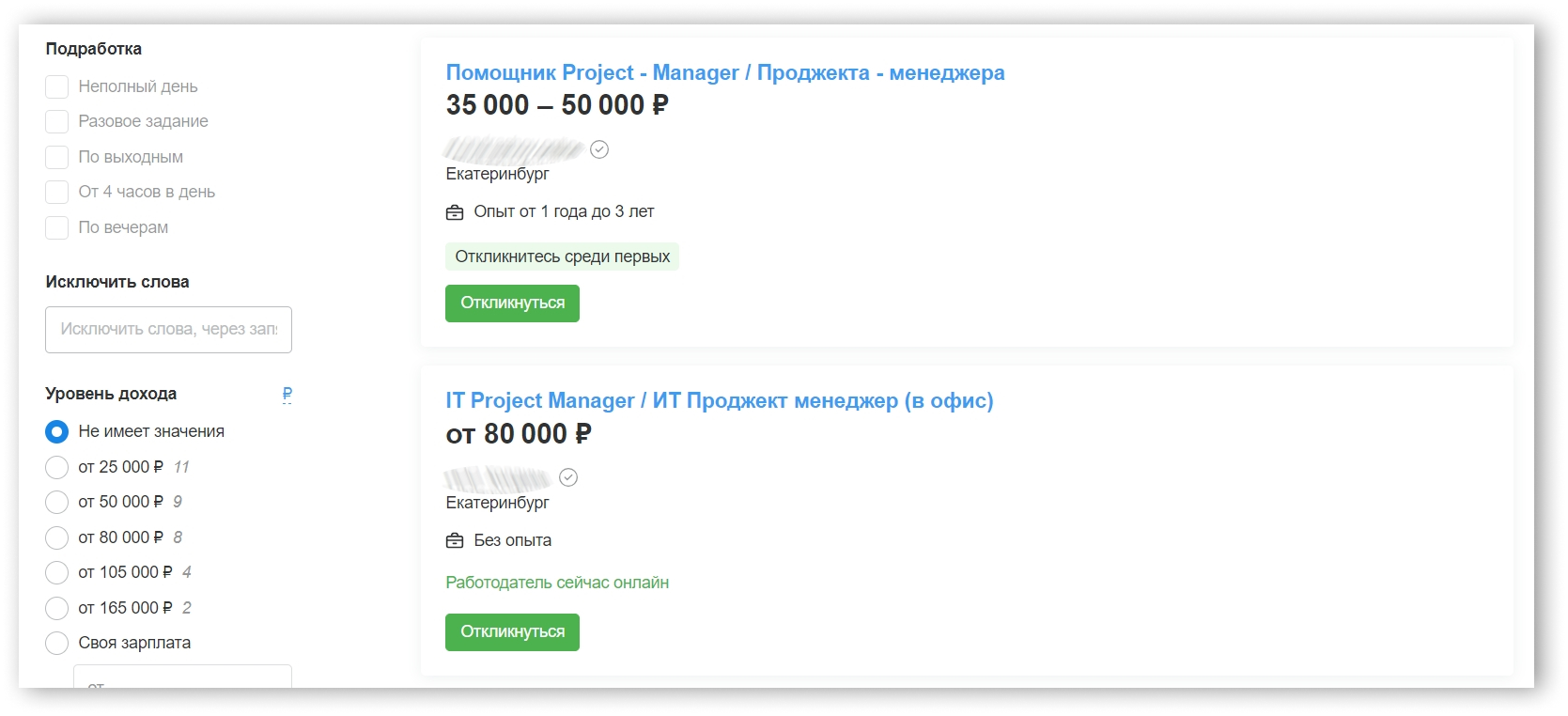
A Project Manager is responsible for planning, coordinating, and overseeing the progress of a project. They anticipate risks, ensure deadlines are met, and keep the budget within limits. The specialist minimizes or eliminates direct communication between developers and clients, maintaining a healthy team atmosphere.
Primary Responsibilities
- Defining project goals.
- Allocating tasks among team members.
- Managing resources and timelines, regularly updating the client on progress.
- Effectively collaborating with the team and promptly addressing issues.
Required Skills
- Exceptional communication skills for effective team and client interactions.
- Leadership abilities, motivation, and conflict resolution skills.
- Knowledge of project management methodologies and tools such as Agile, Scrum, Kanban.
- Use of digital systems for planning, such as Jira or Trello.
- Understanding the technical aspects of the project.
Product Manager

A Product Manager is accountable for steering the development and management of the complete lifecycle of a singular product, potentially involving multiple projects. The specialist's goal is to attain utmost success in the market for the assigned brand, product, or service. Key responsibilities encompass conducting marketing research, grasping the Unique Selling Proposition (USP), and formulating the product strategy. Articulating product requirements and supervising development implementation are also integral facets of the role.
Primary Responsibilities
- Marketing research.
- Understanding Unique Selling Proposition (USP) and defining product strategy.
- Formulating product requirements.
- Overseeing and implementing development.
Required Skills
- Strategic thinking.
- Proficiency in data analysis.
- Understanding of customer needs.
- Effective communication with diverse stakeholders, including developers, marketers, and technical support.
- Knowledge of the market and competitive research skills.
- Awareness of technological trends.
Business Analyst
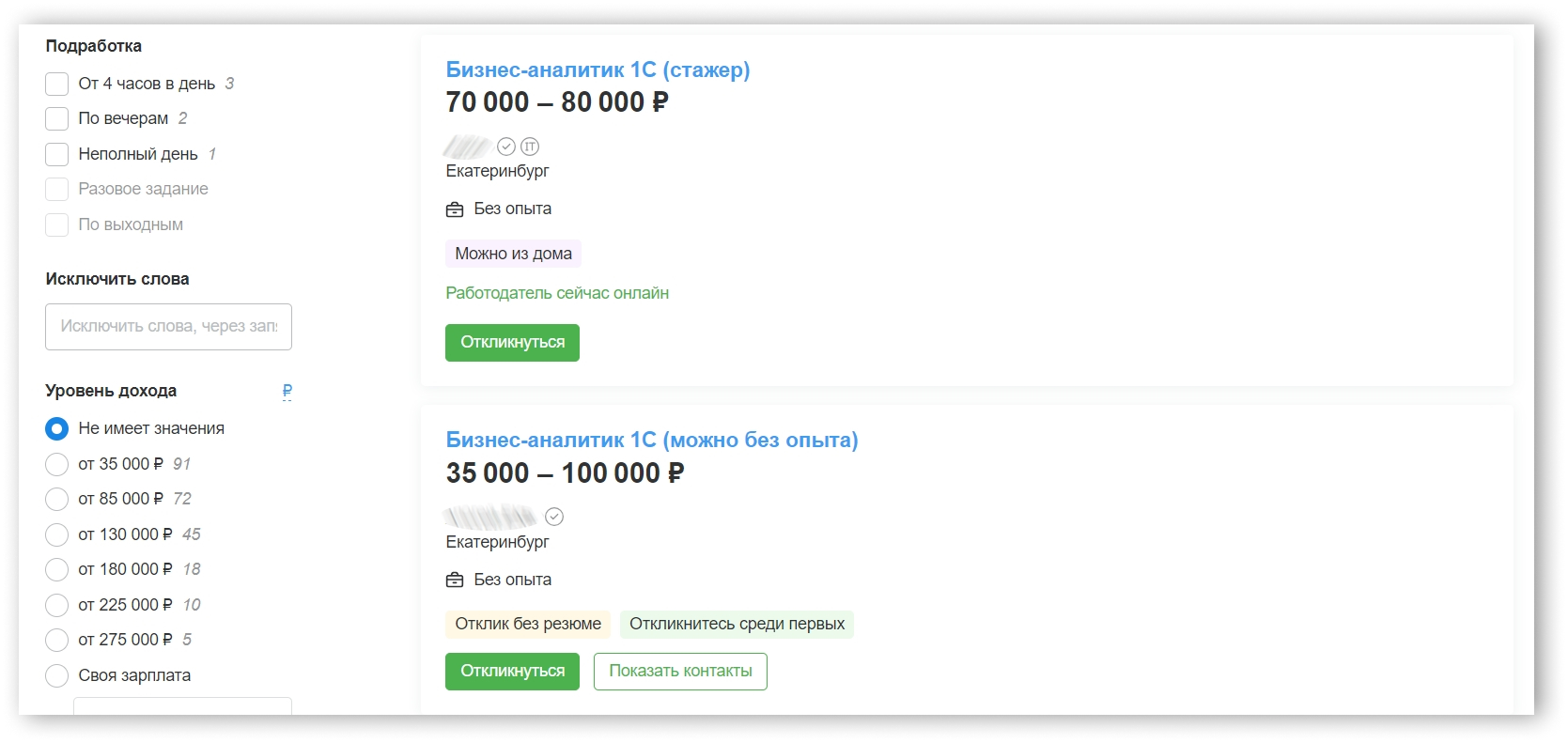
A Business Analyst is involved in studying business processes, identifying company needs, and providing recommendations for enhancing efficiency. Their role is crucial for effectively translating company processes into a digital format and, when necessary, improving them.
Primary Responsibilities
- Collection and analysis of data.
- Defining requirements for projects.
- Creating business models.
- Facilitating communication between clients and developers.
Required Skills
- Communicative skills for effective interaction with various stakeholders.
- Analytical thinking, teamwork, and decisiveness.
- Proficiency in data analysis tools such as Microsoft Excel, SQL, and tools for creating diagrams and business process models.
- Knowledge of project and process management methodologies, including BPMN (Business Process Model and Notation).
Data Analyst
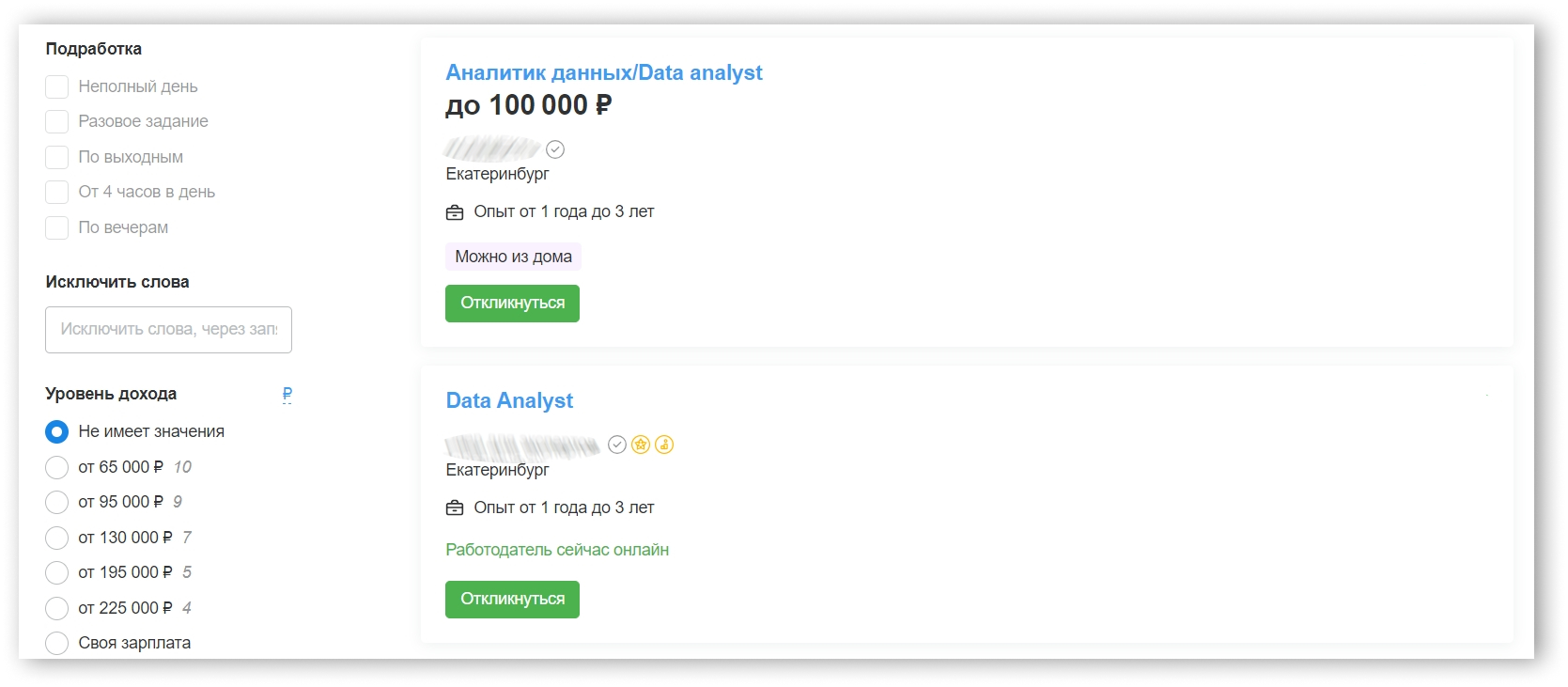
A Data Analyst engages in the collection, processing, and analysis of information to identify patterns and provide business recommendations. Their work provides a visual representation of the strengths and weaknesses of the business, allowing for both problem visualization and proposed solutions.
Primary Responsibilities
- Handling large volumes of data.
- Creating reports and visualizations.
- Identifying trends and patterns.
Required Skills
- Communicative skills for understanding business needs and effectively presenting analysis results.
- Ability to explain complex concepts in simple language and work in a team.
- Proficiency in data analysis tools such as SQL, RStudio, and basic knowledge of Python.
- Utilization of visualization programs like Tableau or Power BI.
Marketing specialist
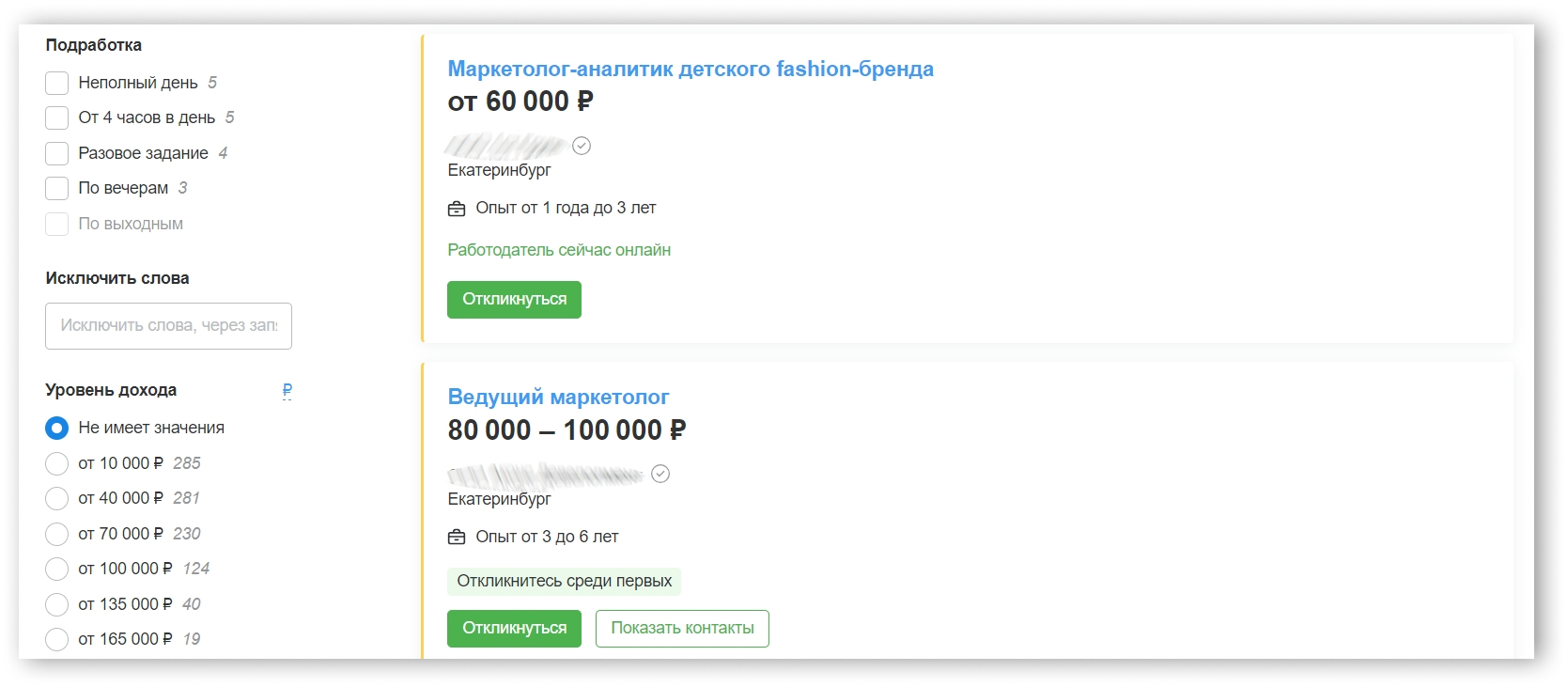
A marketing specialist develops advertising strategies aimed at promoting a company's products or services. The specialist is responsible for the attractiveness and brand recognition among competitors. They study the market and create research focus groups to understand the distinctive features of the product and emphasize them in advertising.
Primary Responsibilities
- Market analysis, defining the target audience, and unique selling propositions (USPs).
- Creating advertising campaigns and participating in branding development.
- Interacting with clients through various communication channels.
Required skills
- Creativity.
- Ability to analyze the market and trends.
- Effective interaction with various stakeholders.
- Knowledge of data analysis tools, such as Google Analytics.
- Working with advertising management platforms like Google Ads, Adfox, and others.
- Understanding the basic principles of marketing and experience in creating content strategies.
SEO specialist (Search Engine Optimization Specialist)
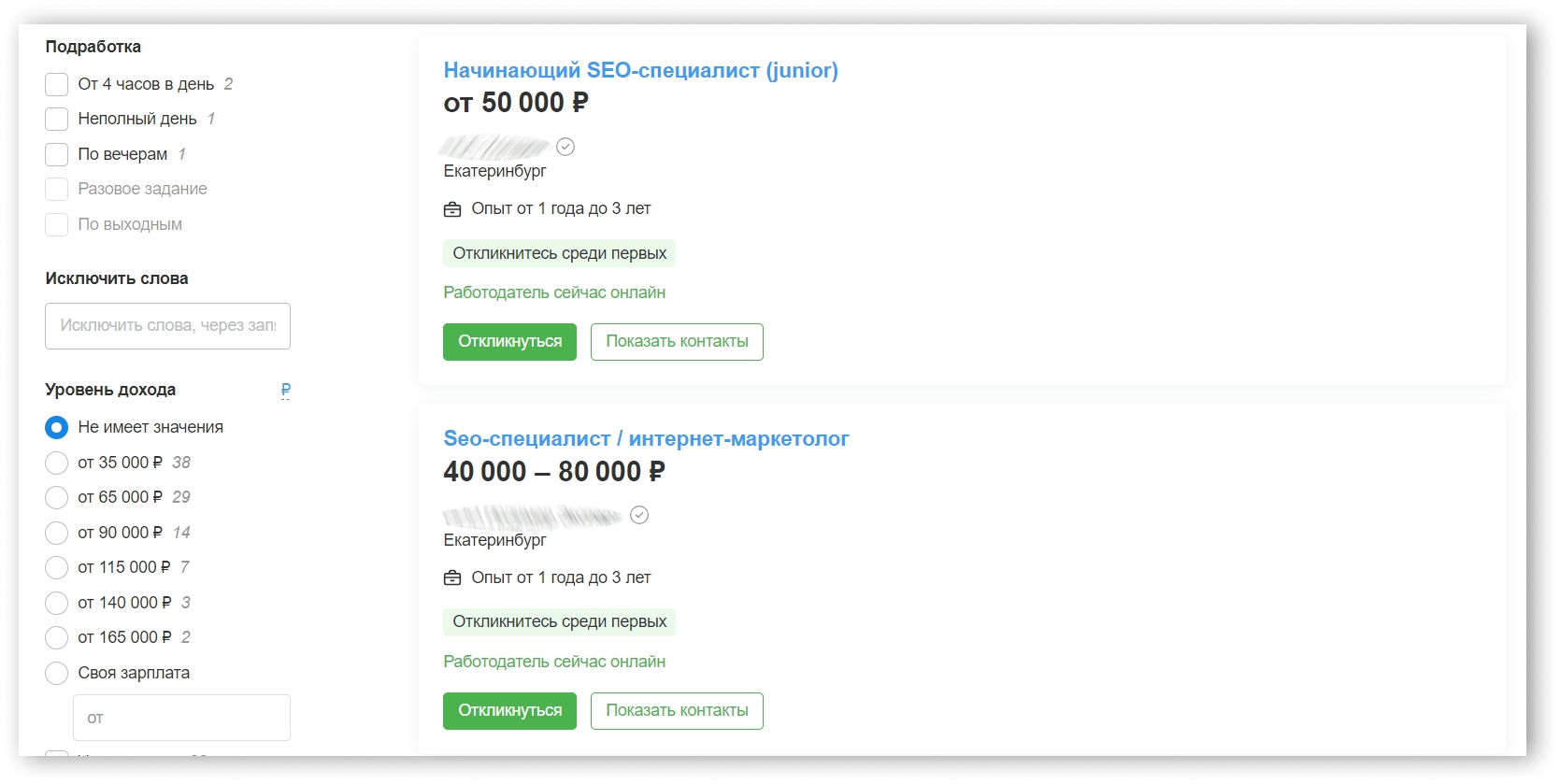
An SEO specialist is responsible for optimizing web platforms to improve their visibility in search engines. It is their job to ensure that when a client searches for a service or product, they see the company's offering among the top search results. The specialist identifies interface or loading speed issues and creates a list of tasks to address them.
Primary Responsibilities
- Keyword analysis.
- Content optimization and optimization of technical aspects of the website.
- Monitoring changes in search engine algorithms and developing a strategy to improve rankings.
- Creating specifications for other specialists such as copywriters, developers, and content managers.
Required Skills
- Analytical thinking and ability to work with PageSpeed data.
- Communication skills for interacting with teams and clients.
- Knowledge of SEO fundamentals and analytics tools.
- Gathering semantic data using Ahrefs or Moz Keyword Explorer.
- Experience in technical website optimization and understanding of search engine algorithms.
Copywriter

The copywriter's area of responsibility is text. They are used as content for web platforms, applications, accounts, landing pages, and advertising placements. A copywriter can be either commercial, working on multiple projects simultaneously, or product-oriented. They must have a good understanding of topics and the reliability of sources to communicate effectively and clearly with the reader.
Primary Responsibilities
- Developing a content plan.
- Writing unique and engaging texts that align with the company's tone of voice.
- Selecting illustrations or creating specifications for designers.
- Native placement of keywords as instructed by the SEO specialist.
Required Skills
- Ability to analyze the target audience and identify their pain points.
- Capacity to process a large volume of information and extract the key points.
- Empathy and the ability to express ideas clearly.
- Knowledge and application of marketing principles in commercial texts.
- Working with auxiliary tools such as "Text.ru," "Advego," "Turgenev".
- Proficiency and experience in adapting texts for different goals and channels.
SMM Specialist (Specialist in Social Media Marketing)
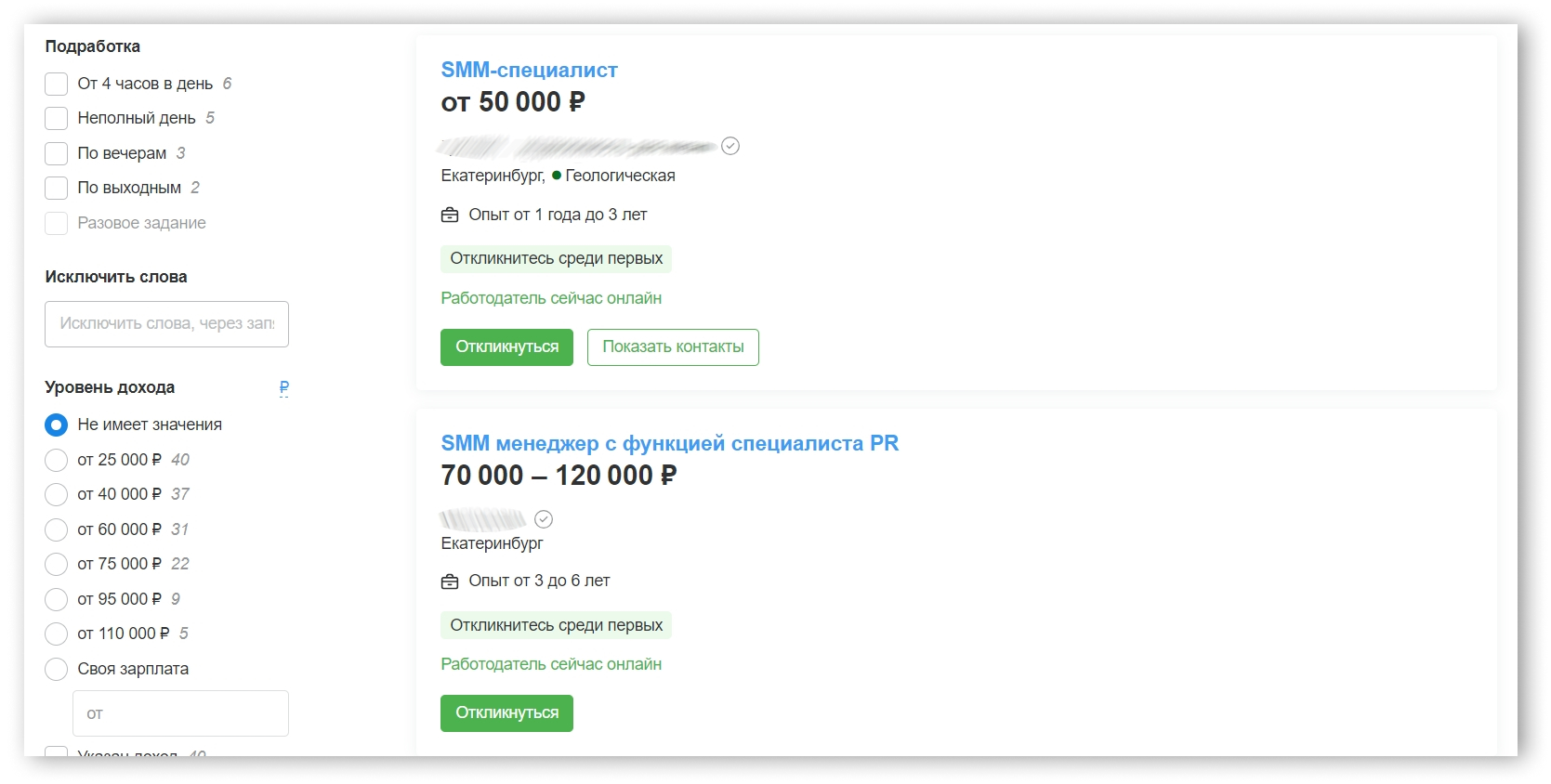
An SMM specialist is responsible for promoting a brand or product through social media platforms and messengers. They immerse themselves deeply in the company's life and "showcase" it to the public. To capture attention, the specialist utilizes various types of content, including informative texts, videos, images, live streams, and giveaways. Often, their income varies and depends on the number of new subscriptions and conversions.
Primary Responsibilities
- Creating content plans and developing creative content.
- Managing campaigns on social media platforms.
- Interacting with the audience and analyzing effectiveness.
Required Skills
- Ability to analyze trends in social media.
- Handling objections and responding quickly.
- Utilizing tools for social media planning and analysis such as LocalGuru, Hootsuite, or Sprout Social.
- Experience in creating advertising campaigns on social networks and understanding the algorithms of different platforms.
Recruiter

A recruiter is responsible for finding and attracting qualified employees for a company. The specialist does not need to have technical expertise for the initial acquaintance with the candidate. However, they must have a good understanding of the soft skills required for the future employee to avoid wasting the managers' time on interviews with unsuitable candidates. The recruiter's salary usually depends on the number of successfully filled vacancies.
Primary Responsibilities
- Interacting with company departments to understand job requirements.
- Posting job openings on job platforms.
- Creating job descriptions, analyzing resumes, and conducting interviews.
- Managing the selection process.
Required Skills
- Ability to listen and understand the business needs.
- Empathy for building long-term relationships with candidates.
- Knowledge and use of platforms like LinkedIn, hh.ru, and others for candidate sourcing.
- Understanding of effective selection methods.
- Knowledge of labor legislation and experience in conducting interviews.
HR specialist or Human Resources Specialist

HR is responsible for managing human resources within an organization. Their responsibilities include creating and maintaining a friendly atmosphere in the team. Organizing corporate events, reward systems, and simply human communication - it's all on the HR specialist.
Primary Responsibilities
- Introducing new employees to the company's working life and providing training.
- Resolving conflicts and managing labor relations.
- Implementing motivation and staff retention programs.
Required skills
- Excellent communication skills for interacting with employees.
- Ability to effectively manage time.
- Tolerance for differences, as well as empathy and understanding of staff needs.
- Understanding of labor laws and standards.
- Experience in developing training programs and conflict management.
Sales Manager

A Sales Manager plays a key role in increasing a company's turnover. Their tasks include both finding new customers and ensuring the satisfaction of existing clients. This is achieved through effective interaction and providing solutions that meet the needs of the customer.
Primary Responsibilities
- Prospecting potential clients and conducting negotiations.
- Creating commercial proposals.
- Closing deals and managing client relationships.
- Achieving sales targets.
Required Skills
- Ability to present a product, persuade, and influence customer decisions.
- Understanding the Unique Selling Points (USPs) of a product.
- Working with a customer database and maintaining it in a CRM system.
- Knowledge of marketing and sales techniques.
- Ability to analyze the market and competitors.
- Planning skills.
Our list consists of the most common positions in IT that are not directly related to coding. Some of them require at least surface knowledge of the company's tech stack, while others do not. For example, an SEO specialist needs to understand how a digital product works in order to provide the right optimization recommendations. A commercial copywriter may not even know the programming language used to build a client's website, but it won't affect their work. However, it's important to remember that in any chosen direction, you should be a professional and not just rely on the phrase "I can do it easily without any training." Without appropriate qualifications, don't waste your and other people's time by applying for a position.
Also, keep in mind that each company posts job vacancies with their own tasks and skill requirements for candidates. We have described general criteria, and more detailed information can be found in the actual employer's job posting.


